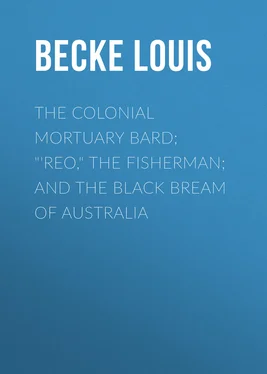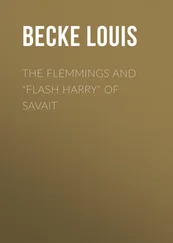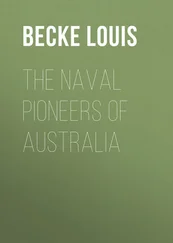Louis Becke - The Colonial Mortuary Bard; 'Reo, The Fisherman; and The Black Bream Of Australia
Здесь есть возможность читать онлайн «Louis Becke - The Colonial Mortuary Bard; 'Reo, The Fisherman; and The Black Bream Of Australia» — ознакомительный отрывок электронной книги совершенно бесплатно, а после прочтения отрывка купить полную версию. В некоторых случаях можно слушать аудио, скачать через торрент в формате fb2 и присутствует краткое содержание. Издательство: Иностранный паблик, Жанр: foreign_prose, literature_19, foreign_antique, на английском языке. Описание произведения, (предисловие) а так же отзывы посетителей доступны на портале библиотеки ЛибКат.
- Название:The Colonial Mortuary Bard; 'Reo, The Fisherman; and The Black Bream Of Australia
- Автор:
- Издательство:Иностранный паблик
- Жанр:
- Год:неизвестен
- ISBN:нет данных
- Рейтинг книги:5 / 5. Голосов: 1
-
Избранное:Добавить в избранное
- Отзывы:
-
Ваша оценка:
- 100
- 1
- 2
- 3
- 4
- 5
The Colonial Mortuary Bard; 'Reo, The Fisherman; and The Black Bream Of Australia: краткое содержание, описание и аннотация
Предлагаем к чтению аннотацию, описание, краткое содержание или предисловие (зависит от того, что написал сам автор книги «The Colonial Mortuary Bard; 'Reo, The Fisherman; and The Black Bream Of Australia»). Если вы не нашли необходимую информацию о книге — напишите в комментариях, мы постараемся отыскать её.
The Colonial Mortuary Bard; 'Reo, The Fisherman; and The Black Bream Of Australia — читать онлайн ознакомительный отрывок
Ниже представлен текст книги, разбитый по страницам. Система сохранения места последней прочитанной страницы, позволяет с удобством читать онлайн бесплатно книгу «The Colonial Mortuary Bard; 'Reo, The Fisherman; and The Black Bream Of Australia», без необходимости каждый раз заново искать на чём Вы остановились. Поставьте закладку, и сможете в любой момент перейти на страницу, на которой закончили чтение.
Интервал:
Закладка:
Louis Becke
The Colonial Mortuary Bard; «'Reo,» The Fisherman; and The Black Bream Of Australia / 1901
THE COLONIAL MORTUARY BARD
A writer in the Sydney Evening News last year gave that journal some amusing extracts from the visitors’ book at Longwood, St. Helena. If the extracts are authentic copies of the original entries, they deserve to be placed on the same high plane as the following, which appeared in a Melbourne newspaper some years ago:—
“Our Emily was so fair
That the angels envied her,
And whispered in her ear,
‘We will take you away on Tuesday night!’”
I once considered this to be the noblest bit of mortuary verse ever written; but since reading the article in the Sydney paper I have changed my opinion, and now think it poor. Bonaparte, however, was a great subject, and even the most unintelligent mortuary verse-maker could not fail to achieve distinction when the Longwood visitors’ book was given up unto him. Frenchmen, especially, figure largely. Here, for instance:—
“Malidiction. O grand homme!
O grand Napoleon!
Mais la France et toi aont venge—
Hudson Lowe est mort!”
The last line is so truly heroic—French heroic. It instantly recalled to me a tale told by an English journalist who, on a cycling tour in France just after the Fashoda crisis, left his “bike” under the care of the proprietor of an hotel in Normandy. In the morning he found the tyres slashed to pieces, and on the saddle a gummed envelope, on which was bravely written, “Fashoda.” This was unintentional mortuary poetry. The gallant Frenchman who did the daring deed when the owner of the “bike” was asleep did not realise that the word itself was a splendid mortuary epic for French aspirations generally.
Then comes something vigorous from one “Jack Lee-Cork,” who writes:—
“The tomb of Napoleon we visit to-day,
And trod on the spot where the tyrant lay;
That his equal again may never appear,
‘Twill be sincerely prayed for many a year.”
The masters and officers of some of the whale-ships touching at St. Helena seem to have made pilgrimages to Longwood. Mr. William Miller, master of the barque Hope , of New Bedford, writes that he “visited the remains of the greatest warrior of the day, interred for twenty years.” Then he breaks out into these noble lines:—
“Here lies the warrior, bravest of the brave,
Visited by Miller, God the Queen may save.”
As a Britisher I shake your hand, William. When you wrote that, forty years ago, American whaling or any other kind of skippers did not particularly care about our nation; but you, William, were a white man. How easily you might have said something nasty about us and made “brave” rhyme with “grave”! But you were a real poet, and above hurting our feelings.
Captain Miller was evidently accompanied by some of his crew, one of whom contributes this gem of prose:—
“Louis F. Waldron, on bord the barke hope of nubedford, its boat steer, has this day been to see honey’s tomb; we are out 24 munts, with 13 hundred barils of sperm oil.”
All greasy luck attend you, honest Louis, boatsteerer, in the shades beyond. You wielded harpoon and lance better than the pen, and couldn’t write poetry. Your informing statement about the “ile” at once recalled to memory an inscription upon the wooden head-board of the grave of another boat-steerer which in 1873 was to be seen at Ponapê, in the Caroline Islands:—
“Sacred to Memory of Jno.
Hollis of sagharbour
boatsterer of ship Europa of new
Bedford who by will of
almity god died of four ribs stove in by a
off pleasant island north pacific
4.17.69.”
Sailors love the full-blooded, exhaustive mortuary poem as well as any one, and generally like to describe in detail the particular complaint or accident from which a shipmate died. Miners, too, like it. Many years ago, in a small mining camp on the Kirk River, in North Queensland, I saw the following inscription painted on the head-board of the grave of a miner who had fallen down a shaft:—
“Remember, men, when you pass by,
What you are now, so once was I.
Straight down the Ripper No. 3 shaft I fell;
The Lord preserve my soul from hell.”
On the Palmer River diggings (also in North Queensland) one William Baker testified to his principles of temperance in the following, written on the back of his “miner’s right,” which was nailed to a strip of deal from a packing-case:—
“Bill Baker is my name,
A man of no faim,
But I was I of the First
In this great Land of thirst
To warn a good mate
Of the sad, dreadful fate,
That will come to him from drink.
—Wm. Baker of S. Shields, England.”
But let me give some more quotations from the Longwood visitors’ book. Three midshipmen of the Melville irreverent young dogs, write:—
“We three have endeavoured, by sundry potations of Mrs. T–‘s brandy, to arrive at a proper pitch of enthusiasm always felt, or assumed to be, by pilgrims to this tomb. It has, however, been a complete failure, which I fear our horses will rue when we arrive at the end of our pilgrimage.—Three Mids. of the Melville .”
That is another gross insult to France—an insult which, fortunately for England, has escaped the notice of the French press. And now two more extracts from the delicious article in the Sydney paper:—
“William Collins, master of the Hawk of Glasgow, from Icaboe, bound to Cork for orders. In hope never to have anything to do with the dung trade! And God send us all a good passage home to old England. Amen! At Longwood.”
I sympathise with you , good William! You describe the guano-carrying industry by a somewhat rude expression; but as a seafaring man who has had the misfortune to be engaged in the transportation of the distressful but highly useful product, I shake your hand even as I shake the greasy hand of Mr. William Miller, the New Bedford blubber-hunter. My benison on you both.
The last excerpt in the book is—
“One murder makes a villain, millions a hero;”
and underneath a brave Frenchman writes—
“You lie—you God-dam Englishman.”
“‘REO,” THE FISHERMAN
‘Reo was a short, squat Malayan, with a face like a skate, barring his eyes, which were long, narrow slits, apparently expressing nothing but supreme indifference to the world in general. But they would light up sometimes with a merry twinkle when the old rogue would narrate some of his past villainies.
He came to Samoa in the old, old days—long before Treaties, and Imperial Commissioners, and other gilded vanities were dreamt of by us poor, hard-working traders. He seemed to have dropped from the sky when one afternoon, as Tom Denison, the supercargo, and some of his friends sat on Charley the Russian’s verandah, drinking lager, he marched up to them, sat down on the steps, and said, “Good evening.”
“Hallo,” said Schlüter, the skipper of the Anna Godeffrey . “Who are you? Where do you come from?”
‘Reo waved a short, stumpy and black clay pipe to and fro, and replied vaguely—
“Oh, from somewhere.”
Some one laughed, surmising correctly enough that he had run away from a ship; then they remembered that no vessel had even touched at Apia for a month. (Later on he told Denison that he had jumped overboard from a Baker’s Island guano-man, as she was running down the coast, and swum ashore, landing at a point twenty miles distant from Apia. The natives in the various villages had given him food, so when he reached the town he was not hungry.)
Читать дальшеИнтервал:
Закладка:
Похожие книги на «The Colonial Mortuary Bard; 'Reo, The Fisherman; and The Black Bream Of Australia»
Представляем Вашему вниманию похожие книги на «The Colonial Mortuary Bard; 'Reo, The Fisherman; and The Black Bream Of Australia» списком для выбора. Мы отобрали схожую по названию и смыслу литературу в надежде предоставить читателям больше вариантов отыскать новые, интересные, ещё непрочитанные произведения.
Обсуждение, отзывы о книге «The Colonial Mortuary Bard; 'Reo, The Fisherman; and The Black Bream Of Australia» и просто собственные мнения читателей. Оставьте ваши комментарии, напишите, что Вы думаете о произведении, его смысле или главных героях. Укажите что конкретно понравилось, а что нет, и почему Вы так считаете.












